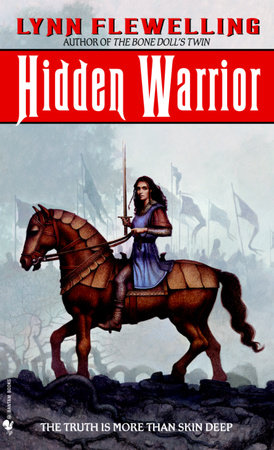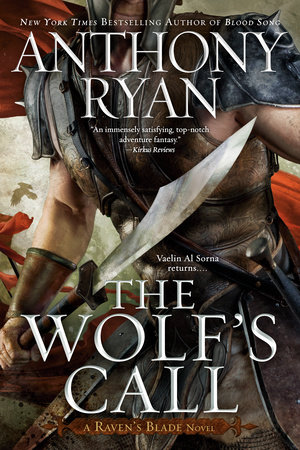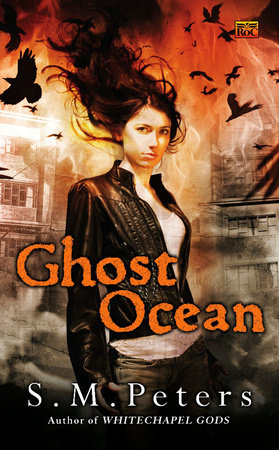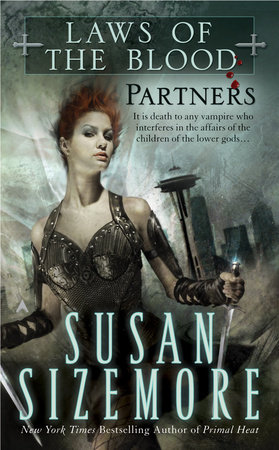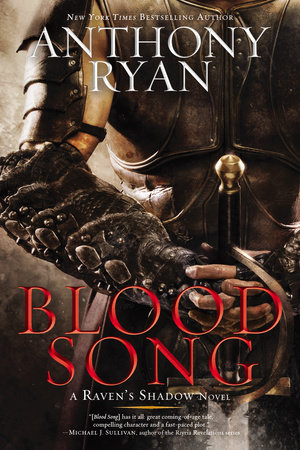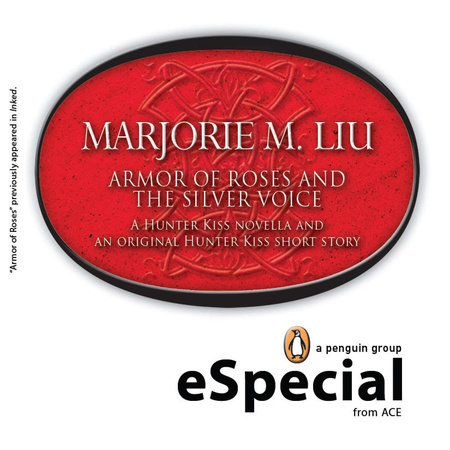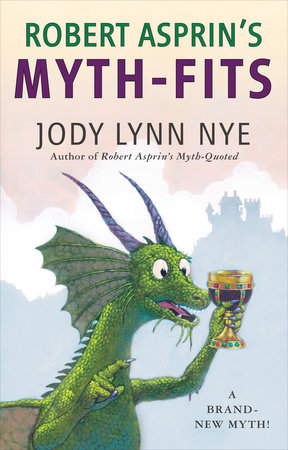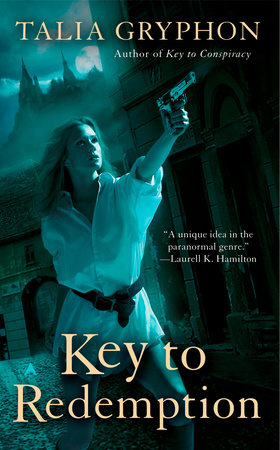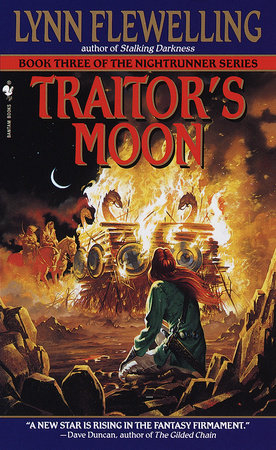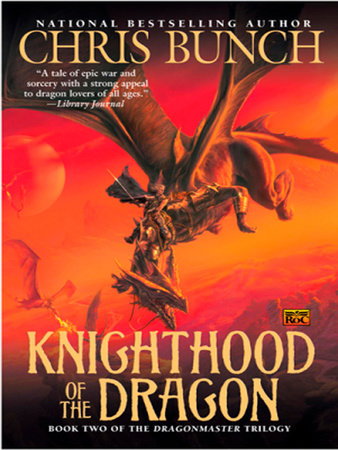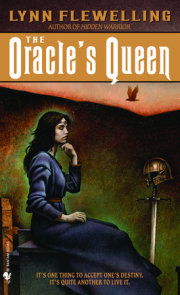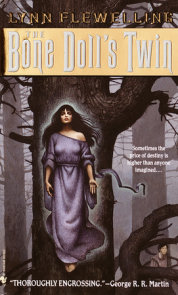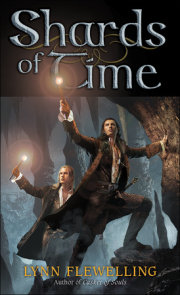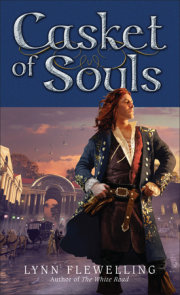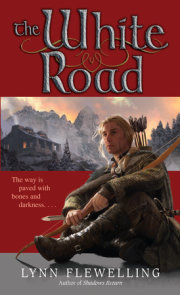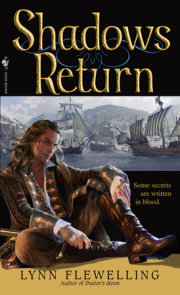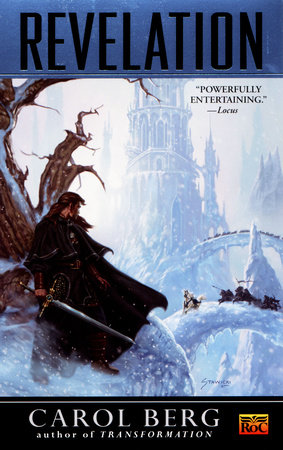Author Q&A
Spectra: The first two books of your Tamír Triad–The Bone Doll’s Twin and Hidden Warrior– mark quite a departure from the Nightrunner books. What made you take this darker direction?
Lynn Flewelling: You have to admit, there are some pretty dark parts in the NR books–dark comes quite naturally to me–and they get darker as the series progresses. But you’re right, the tone is quite different in the new trilogy. When I started writing Luck in the Shadows, I just wanted to create an adventure story. With the Tamír Triad, I had several themes I was working with from the outset. The more obvious one, perhaps, is the nature of power. Do the ends justify the means? Can a greater good be achieved through inherently evil acts by well-meaning people, and can they ultimately be atoned for? I don’t answer this for the reader; I don’t think there is an answer, really. We see that in real life all the time. It would be lovely if it was all Right vs. Wrong, Good overcomes Evil — I think most Americans, going about their daily lives, fool themselves into thinking that that’s how our little world works, but it just isn’t so. The Powers That Be do all sorts of things we don’t like, but we turn a blind eye and reap the benefits.
The deeper, more personal theme for me revolves around some personal demons of mine: the nature of gender, and how perceptions vary from person to person, and from stage to stage of an individual’s life. I actually have a hard time going into this in interviews, because I’m drawing on some deeply personal experiences. These books are by no means autobiographical, of course, but there’s a lot of synthesis.
Spectra: The dead child’s ghost, a mother’s suicide, the death of parents and friends… These could have been really depressing books, but somehow they aren’t. How did you manage that balance?
LF: I considered that as I wrote. I think the key is to give the reader characters they not only care about, but identify with, and to never take away all hope. Tobin has a very weird, sad childhood, but there is always at least one person around who cares about him/her, and to whom Tobin can turn.
That being said, however, about halfway through the first draft of BDT I came to the same conclusion that the young wizard Arkoniel states; this kid is so removed from normal society he’s going to turn out really weird. So we brought in the upbeat companion, Ki. The minute I started working on him I fell completely in love with him and his chaotic, rough hewn family. They’re modeled on a couple of families I knew growing up. Ki’s based quite closely on my first best friend. The witch, Lhel, is also based on a person from my past, a woman who taught me the guitar (or at least tried to) who was a wonderful artist and generally creative, chaotic person.
In short, these books are more personal to me on some levels than the Nightrunner books, even though those other characters are certainly drawn from my heart.
Spectra: Would you say you have any particular audience, age or gender wise?
LF: Not really. I’ve gotten mail from just about every sort of person you can imagine. The online fan groups tend to be 20s-30s, but the email and letters spans the full spectrum. I’ve been amazed, too, at how far afield it comes from.
Spectra: Your work certainly does have a wide appeal, and has now found a world-wide audience. How many languages are your books in now?
LF: Let’s see, we recently sold Bone Doll in France, Spain, and Portugal, so if you count the UK and Australian publishers as separate languages, that brings me up to nine, I think, plus the US. I get mail from other countries all over the world.
Spectra: How does it feel, knowing your work has found such a wide audience?
LF: Amazing. I never imagined such a thing when I started. It’s a lot of fun.
Spectra: I know fans are clamoring for more Nightrunner books. Any chance that you’ll go back to those characters when you’re finished with the trilogy?
LF: Yes, but that’s all I’m saying for now.
Spectra: Finally, it seems that all your books deal with gender and sexuality in various forms. Has the research you’ve done altered your feelings about certain issues?
LF: No. I write what I believe. I haven’t done much research, in fact. I just write from the gut. To be honest, while I deeply appreciate the response I’ve gotten from the gay and transgender community over the years, those issues are more manifestations of my own core theme, the search for personal identity. Some people read Tobin as a transgendered person, and that’s an absolutely valid interpretation, and somewhat intentional. But for me it’s more about a person finding out she isn’t who she thought she was and having to struggle with her deepest held beliefs about what it means to be who she is. Gay and transgendered people certainly experience this in a dramatic way, but so do others, in other ways. What it means to be female in the 20th/21st century has been a strange and sometimes confusing journey for me. Gender distinctions have never been that important to me, and I’ve often resented what I percieve as the restrictions they impose, even in a society as open as ours. The older I get, the more angles I see this issue from and the more fascinating it becomes. I guess the spectrum of human interaction I’ve written about so far gives you some idea of that. There is nothing more interesting to me than human interaction. Luckily, there’s a never ending supply of that!
